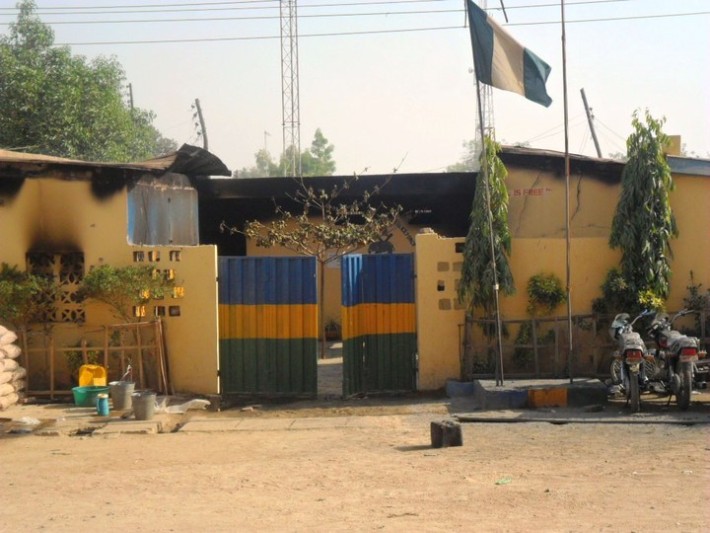AN international Civil Society Organization, Save the Children International, SCI, Thursday, raised the alarm over 75,000 children killed by flood in Nigeria and Niger Republic.
This was contained in a statement issued by SCI, where it pointed that torrential rain is expected to continue in southern Niger and northern Nigeria until end of September.
The statement reads in part, “More than 150,000 people, of which about half are children, have been severely affected by floods in Niger and Nigeria in recent weeks.
“The torrential rain is expected to continue in southern Niger and northern Nigeria until end of September, which could lead to further loss of homes, crops and livestock.”
SCI recalled that, “Since early July, intense rainfall has affected communities along the Niger-Nigeria border, triggering flooding which has washed away or damaged at least 14,900 homes.
“Most of the displaced families have been forced to shelter in schools, abandoned buildings, makeshift tents, or with distant family members, some leaving all of their belongings behind.
“The flooding has wreaked havoc in Niger’s Maradi, Zinder, Tillaberi and Tahoua regions, and in Borno, Yobe, and Adamawa states in Nigeria. More than 100,000 people have been affected in Niger alone.
“Floods in the Sahel region are becoming more frequent and widespread. More than 300 people have died from flooding in Nigeria this year, and at least 75 people died in Niger this summer.”
SCI lamented also that decades of conflict and insecurity, along with drought and poor rainfall, have already damaged food sources and livelihoods across Niger and Nigeria, leading to soaring levels of hunger.
“The same areas hit hardest by the torrential rains have some of the highest levels of hunger in the region.
“In Yobe State, Nigeria, an estimated 1.6 million people – nearly 40 per cent of the population – don’t know where their next meal will come from.
“In Niger, children in the east and south of the country, particularly in Maradi and Zinder – two regions severely devastated by the flooding – are the most affected by hunger.
Meanwhile, according to SCI, “An estimated 6.3 million children under five were already predicted to suffer from malnutrition across the Sahel this year.
“Now with flooding damaging crops and other food sources, hunger levels in Niger and Nigeria are likely to worsen.
“Cholera is creating an added danger for children, with cases of the waterborne disease spiking in Maradi, Zinder and Borno States, all areas severely affected by flooding.
“More than 90 cases of cholera have been reported in Borno state, Nigeria, alone, with the majority of suspected cases affecting children under five years old.
The statement also quoted Country Director, Save the Children, Famari Barro, Nigeria, “It is important that assistance is provided to those affected people and particularly to children, who are always most vulnerable at times of crisis.
“Children need a stable environment, and we need to ensure that children can return to school in the coming days.
“It is important that classrooms are available and safe for children and that families can return safely to their homes.
“Without immediate support, the situation could deteriorate in the coming weeks as people could face multiple crises with the peak of the lean season and significant displacement could still occur with negative coping mechanisms such as child begging or sex for money.
“To date, the humanitarian response plan for Nigeria for 2022 has only been 37 per cent funded. The worst is probably not over, we must act and develop prevention measures.”
Also the Country Director, Save the Children, Ilaria Manunza, Niger Republic, said, “Families are overwhelmed by the severe flooding.
“Many of them have never seen such devastation from the rain before.
“In the middle of the planting season, their already reduced food rations, livelihood assets, livestock, and farmland have been damaged.
“Families who have been forced to leave their usual living, have to change their habits, their environment and adapt to new living conditions.
“Flooded areas or lack of clean water can lead to the development of diseases such as cholera, malaria, or dengue fever. Niger has many children affected by malnutrition.
“It is also known that malnourished children are already very fragile and likely to easily catch these diseases, which weaken them and contribute to an increase in under-five deaths.”
According to UN climate experts, regions of Africa including the Sahel are likely to experience an increase in the frequency, intensity, and/or quantity of heavy rainfall as the result of climate change. The risk of these heavy rainfall events increases as temperatures rise.
Save the Children in Niger and Nigeria is providing families with shelter, hygiene products, dignity kits, cooking utensils, drinking water containers, enriched flour for children aged six months to two years old, and cash transfers to assist with their most basic needs.







